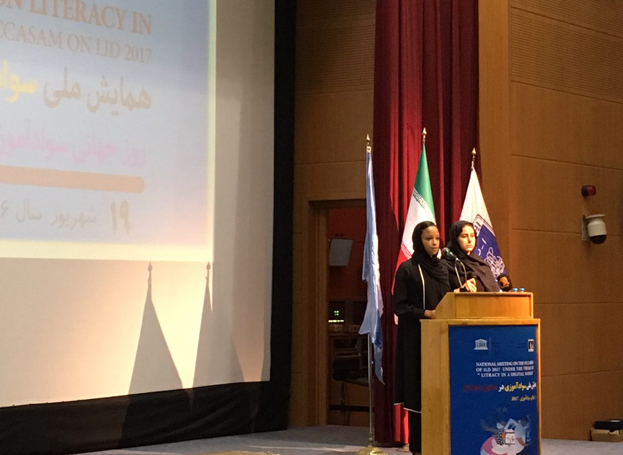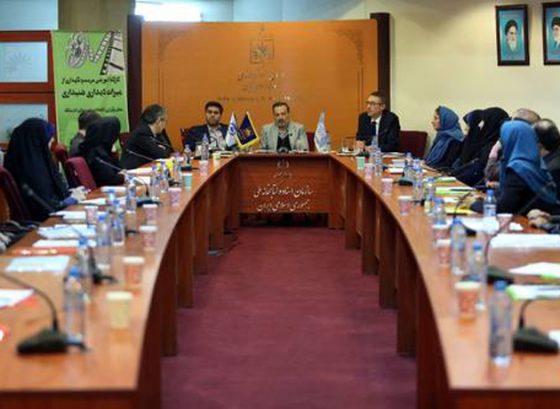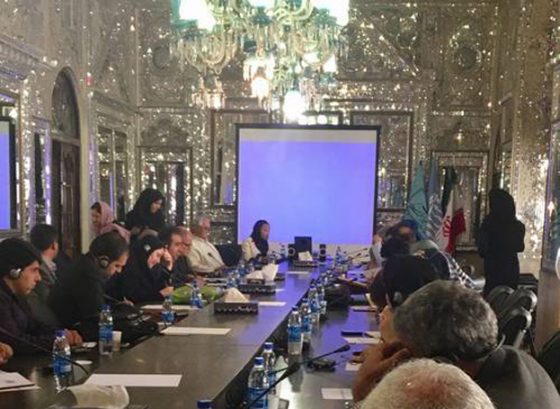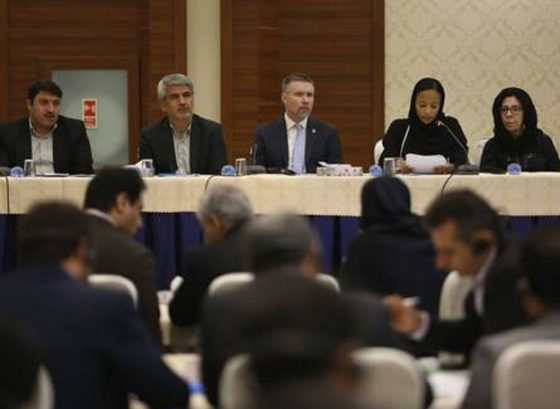Iran celebrates International Literacy Day

On 10 September 2017, the Literacy Movement Organization (LMO), under the Iranian Ministry of Education, and the Iranian National Commission for UNESCO jointly organized a national meeting to celebrate International Literacy Day (ILD) under the theme of “Literacy in a Digital World”. The celebration was hosted by the Institute for the Intellectual Development of Children and Young Adults in Tehran, AVA Diplomatic reports.
The event was attended by a wide range of high-level government officials, including Dr. Mohsen Haji Mirzaei, Secretary of the Cabinet of Ministers; Dr. Mohammad Bathaei, Minister of Education; Dr. Ali Rabiei, Minister of Cooperatives, Labour and Social Welfare; and Dr. Ali Bagherzadeh, Vice-Minister of Education and Head of LMO.
Dr. Bagherzadeh formally opened the meeting by explaining that fifty-two years ago, the World Congress of Ministers of Education took place in Tehran and pledged the eradication of illiteracy.
He continued by providing an overview of LMO’s activities over the past five years, highlighting pilot projects using mobile technology for adult literacy learners; the release of the Healthy Family Booklet, which was developed jointly with UNESCO to strengthen nutrition learning amongst low-literate families; and ICDL programmes for literacy learners at second grade level.
“There is a need for new ICT tools to be employed in teaching and learning, but we should keep in mind that acceptance of technology by learners might take some time”, said Dr. Bagherzadeh.
Ms. Esther Kuisch Laroche, Director and Representative of the UNESCO Tehran Cluster Office mentioned that September 8th was proclaimed as International Literacy Day by UNESCO at the 14th session of its General Conference in 1966 to remind the international community of the importance of literacy for individuals, communities, and societies, and the need for intensified efforts towards more literate societies.
“This year’s theme was selected to allow us to reflect on what it means to be literate in increasingly digitally-mediated societies; to explore effective policies and programmes for literacy skills development in a digital world; and to explore how digital technologies can help ensure that by 2030, all youth and a substantial proportion of adults, both men and women, achieve literacy and numeracy”, said Ms. Kuisch Laroche. “Today digital technologies – including the Internet, mobile phones, and all the other tools to manage information digitally – are fundamentally changing the way people live and work, learn, and socialize. It is important for us to understand what kinds and levels of literacy skills are required in an increasingly digital world and how such skills could be related to a broader set of knowledge, skills, and competencies required in the digital world.”
The newly appointed Minister of Education, Dr. Bathaei discussed a variety of topics, including issues related to the curriculum, the importance of participatory governance in Education, and moving from traditional methods of education to new and innovative ones. “The theme of literacy in a digital world emphasizes the importance of proper use of ICT in basic education” said the Minister.
In keeping with the theme of this year’s International Literacy Day, LMO unveiled a new educational mobile application called “Healthy Family”, which was developed jointly by LMO, the UNESCO Tehran Cluster Office, and Bel Rouzaneh Dairy Company.
In 2016, UNESCO, LMO and Bel Rouzaneh Dairy Company had already joined hands and developed the “Healthy Family Booklet”, which was designed to engage adult literacy learners and offer practical lessons on nutrition and water consumption. Inspired by the success of the booklet, UNESCO once again partnered with LMO and Bel Rouzaneh Dairy Company to develop an innovative and free-of-charge mobile application in an effort to reach more learners, both in formal and non-formal education.
The application features a seamless mix of visually engaging animation, together with video, text and audio. Built-in quizzes and exercises will enable LMO to monitor the learning outcomes of users. The data analytics produced by the application will not only assist LMO in the area of monitoring and evaluation, but in the longer term, this data will also be meaningful in suggesting improvements to the process and developing more advanced mobile applications targeting literacy learners.




